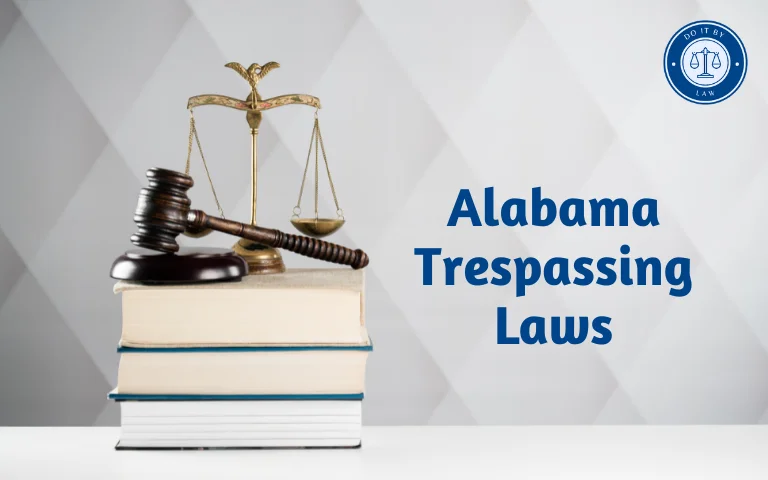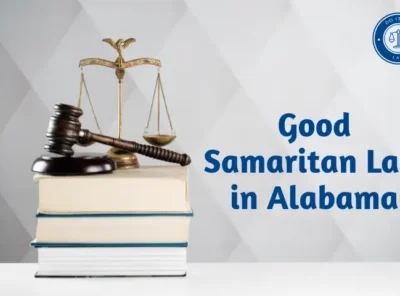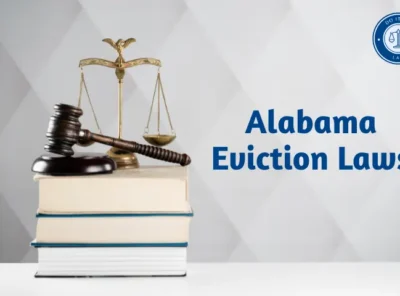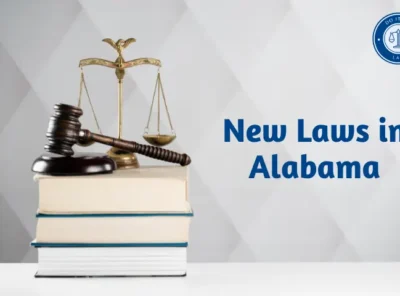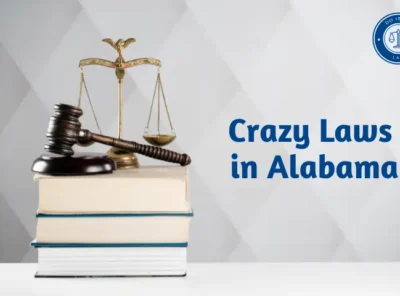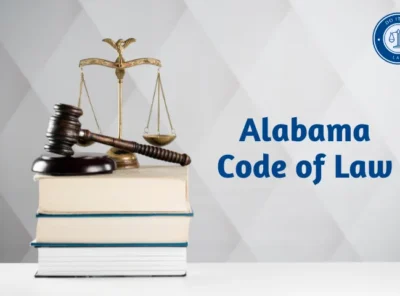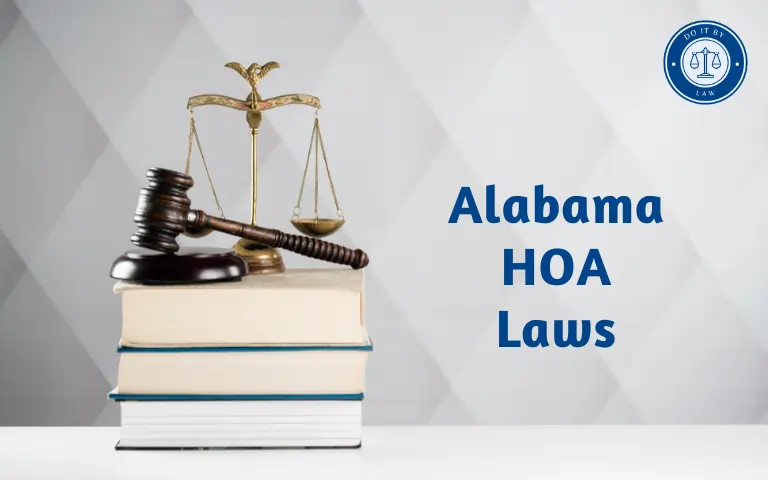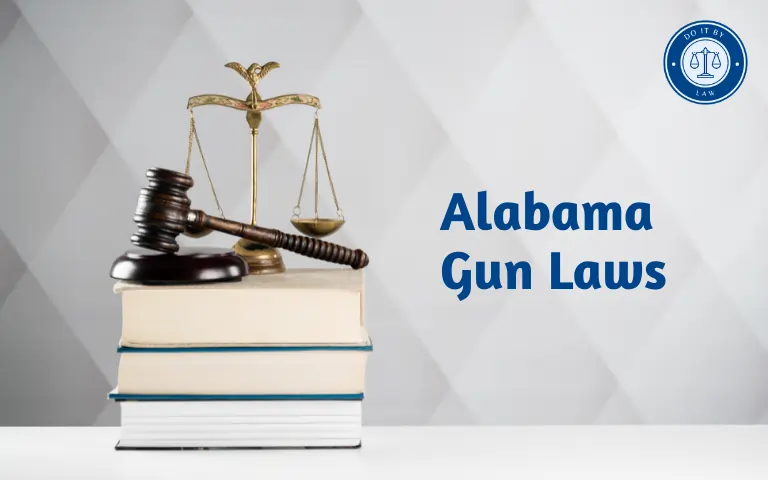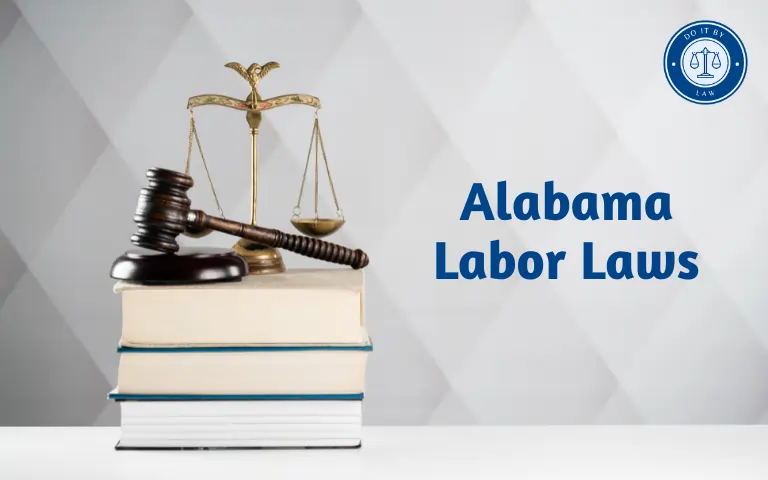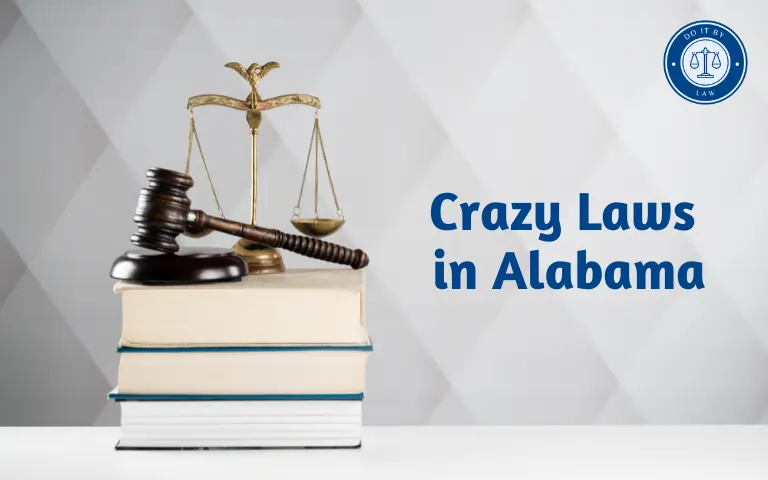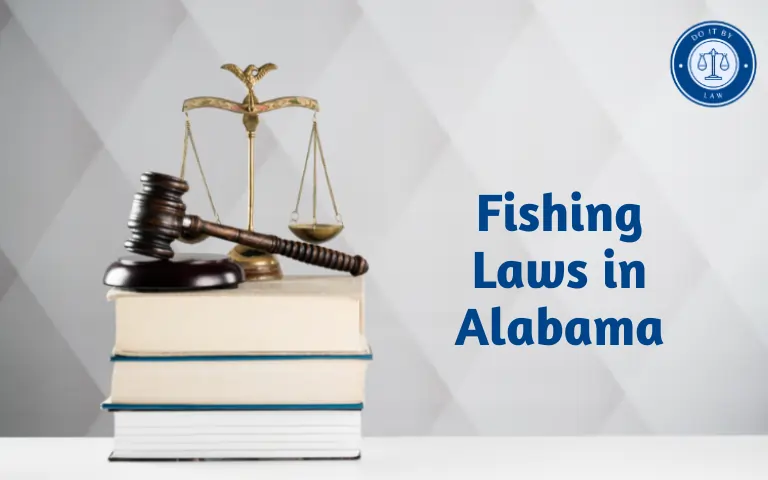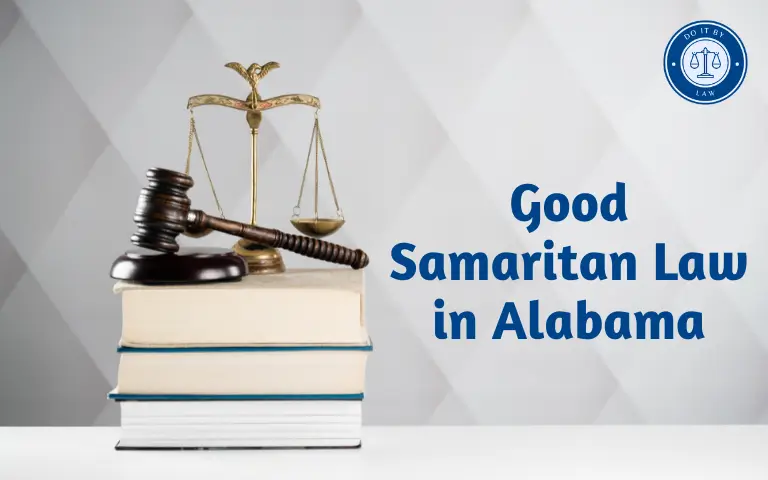Alabama Trespassing Laws & Criminal Charges Explained
Are you dealing with unwanted visitors on your property or facing a criminal trespass charge in Alabama? Whether you’re a landowner, tenant, or someone unsure about trespassing laws in Alabama, understanding your rights is critical. Many people ask: Is trespassing illegal in Alabama? What’s the penalty? This guide breaks it all down—from degrees of criminal trespass to possible punishments and how to take legal action.
Keep reading to know more about how Alabama law handles criminal trespass 1st, 2nd, and 3rd degree, and what steps to take if you need to press charges or defend yourself.
What Is Considered Trespassing in Alabama?
Under Alabama trespassing laws, criminal trespass occurs when a person knowingly enters or remains on property without legal authorization. The law applies to both private and public property, with varying levels of severity based on the type of location and the circumstances involved.
⚖️ Definition of Criminal Trespass Under Alabama Law
According to the Alabama Criminal Code (Section 13A-7-1), criminal trespass is defined as the unlawful entry or presence on someone else’s property with intent to intrude or remain without consent. The law classifies trespassing into three degrees (1st, 2nd, and 3rd), with penalties ranging from minor fines to possible jail time.
Example: Walking into a fenced backyard without permission or staying in a store after hours may qualify as criminal trespass depending on the degree.
🏠 Private Property vs. Public Property
The key distinction in trespassing laws in Alabama depends on whether the land or structure is privately owned or accessible to the public.
| Type of Property | Can You Be Charged? | Examples |
|---|---|---|
| Private Property | ✅ Yes | Homes, yards, farms, fenced lands |
| Public Property | ✅ Yes (under conditions) | Government buildings after hours, schools, restricted zones |
Even public property can become off-limits—especially during closed hours or if “No Trespassing” signs are displayed. Trespassing on public property still carries legal consequences.
🔒 What Constitutes Trespassing on Private Property in Alabama?
To press charges or defend against a criminal trespass charge in Alabama, the following conditions typically apply:
- The person entered or stayed without consent
- There were visible no trespassing signs or fencing
- The property owner requested the person to leave, and they refused
- The individual was aware or should have reasonably known they were not allowed
📌 Reminder: Even verbal warnings from a property owner can be enough to initiate legal action in Alabama.
📢 Need to protect your land or business? Contact a local Alabama trespass attorney to learn how to file a criminal complaint.
Why Do These Trespassing Laws Exist in Alabama?
Trespassing laws in Alabama exist to protect the rights of property owners, maintain public safety, and establish clear legal boundaries. Whether it’s a private residence, business, or rural land, these laws help define what’s lawful — and what isn’t — when it comes to entering or remaining on someone else’s property.
🎯 Core Purposes of Alabama Trespass Laws
| Purpose | Explanation |
|---|---|
| Protect Private Property | The law affirms that no one has the right to enter your land without permission. |
| Prevent Unauthorized Entry | Helps deter loitering, break-ins, and potential criminal activity. |
| Support Law Enforcement | Gives police clear authority to remove or charge trespassers when property rights are violated. |
| Clarify Civil vs. Criminal Disputes | Differentiates between accidental entry and willful trespass, protecting both owners and visitors. |
| Promote Safety | Reduces risks associated with unauthorized access to dangerous areas like farms, factories, or construction zones. |
🧠 Did You Know?
- Criminal trespass laws are also meant to prevent confrontations between owners and violators by providing a lawful channel to handle disputes.
- Posting “No Trespassing” signs is a legal method of proactively securing your land — especially in rural Alabama where boundaries can be unclear.
💼 Real-World Relevance
Trespass laws are commonly used in:
- Landlord-tenant disputes after eviction
- Business protection against disruptive customers
- Family property disagreements
- Urban vs. rural land disputes
Degrees of Criminal Trespass in Alabama
Trespassing in Alabama is categorized into three degrees based on the location, the intent, and whether the property is residential, commercial, or posted. Each level carries different legal consequences, from minor fines to jail time.
| Degree | Applicable Area | Legal Classification | Examples | Penalties |
|---|---|---|---|---|
| 1st Degree | Occupied dwelling (home, apartment) | Class A Misdemeanor | Entering someone’s home without permission | Up to 1 year jail, $6,000 fine |
| 2nd Degree | Non-residential building or fenced commercial property | Class C Misdemeanor | Entering a store after hours, hopping fence into business lot | Up to 3 months jail, $500 fine |
| 3rd Degree | Unfenced or posted land (private property) | Violation / Infraction | Walking onto private land marked “No Trespassing” | Fine up to $200, citation |
Criminal Trespass 1st Degree Alabama
Criminal trespass in the first degree (Code of Alabama §13A-7-2) involves knowingly entering or remaining in an occupied dwelling, such as someone’s home or apartment, without permission.
Key Details:
- Involves residential dwellings
- Can apply even without forced entry
- May be considered a Class A misdemeanor
- Potential felony trespass if accompanied by intent to commit another crime
Penalties:
- Up to 1 year in jail
- Fines up to $6,000
Example: Walking into someone’s home thinking it’s a public Airbnb can still lead to charges if you stay without permission.
Criminal Trespass 2nd Degree Alabama
Second-degree criminal trespass (Code of Alabama §13A-7-3) applies when someone enters or remains in a building that is not a residence—such as a store, office, or fenced commercial property—without lawful authority.
Common Scenarios:
- Entering a locked business after hours
- Climbing over a fence into a restricted area
Penalties:
- Classified as a Class C misdemeanor
- Up to 3 months in jail
- Fines up to $500
Criminal Trespass 3rd Degree Alabama
Third-degree criminal trespass (Code of Alabama §13A-7-4) is the least severe, involving unfenced or posted land, such as open fields, without explicit permission.
Criminal Trespassing 3rd Degree Punishment Alabama:
- Considered a violation or infraction
- Typically results in a fine (up to $200) or a citation, not jail time
Examples:
- Walking through private woods marked with “No Trespassing”
- Parking on private property without consent
⚠️ Important: Even posted signs or verbal warnings are enough for a criminal trespass charge in Alabama.
📌 Need legal help after a trespass charge? Contact an Alabama criminal defense attorney →
Penalties and Charges for Trespassing in Alabama
If you’ve been charged with trespassing in Alabama, you’re probably wondering: Is this a serious offense? Will it stay on my record? Here’s what you need to know about how Alabama classifies and penalizes trespassing — and when it can become a felony.
🧾 Is Trespassing a Felony in Alabama?
In most cases, trespassing is not a felony in Alabama. However, the degree of the charge can elevate the seriousness. Trespass becomes a Class A misdemeanor when it involves entering an occupied dwelling, such as someone’s home. While this isn’t a felony, it’s just one step below — and can have lasting consequences.
Felony trespass charges may arise if trespassing accompanies intent to commit another crime, such as burglary. Otherwise, typical trespass cases remain in the misdemeanor or infraction category.
| Classification | Common Scenarios | Penalty |
|---|---|---|
| Class A Misdemeanor | Entering a residence without permission | Up to 1 year in jail, $6,000 fine |
| Class C Misdemeanor | Entering a store, fenced yard, or business property | Up to 90 days in jail, $500 fine |
| Violation / Infraction | Entering posted or private land (unfenced) | Fine up to $200, no jail |
📝 Fines, Jail Time & Court Costs
In addition to fines and potential jail time, individuals charged with trespassing may face:
- Court costs and fees
- Community service hours
- Probation conditions
Repeat offenses or additional charges (such as vandalism or theft) can significantly increase penalties.
🔍 Does Trespassing Go on Your Record?
Yes. Trespassing charges can appear on your criminal record, even if classified as a misdemeanor or violation. This may impact:
- Employment background checks
- Rental housing applications
- Security clearances
Expungement may be possible under certain circumstances, especially for first-time or low-level offenses — but you’ll need to consult a local attorney for guidance.
📞 Take Action: Don’t let a trespassing charge follow you for life.
How to Trespass Someone in Alabama
Wondering how to legally remove someone from your property in Alabama or prevent them from returning? Whether it’s an ex-tenant, a former friend, or a stranger refusing to leave — you have rights as a property owner under Alabama trespassing laws.
Here’s how to formally trespass someone and protect your property the right way.
| Step | Action | Details |
|---|---|---|
| 1. Give Clear Verbal Notice | Tell the person to leave your property. | You must explicitly ask them to leave — this satisfies legal “notice.” |
| 2. Post “No Trespassing” Signs | Display signs on private land. | Helps enforce criminal trespass claims, especially for 2nd or 3rd-degree cases. |
| 3. Issue a Written Notice (Optional but Stronger) | Send a dated written request to vacate. | Useful for repeat trespassers and future legal proof. |
| 4. Contact Law Enforcement | Call the police if they return. | Police can issue a warning or charge them with criminal trespass. |
| 5. File a No-Trespass Order (for businesses) | Some local jurisdictions allow property owners to file this. | Law enforcement keeps it on file; applies especially to retail/office settings. |
🛑 Important Tips
- Do not use force unless you are in immediate danger. Let the police handle enforcement.
- Keep proof of notice (text messages, signs, witnesses, video footage).
- For landlords, follow eviction procedures — trespass laws do not apply to tenants under lease without proper notice.
📘 Can I File a No Trespass Order in Alabama?
Alabama law doesn’t offer a universal “no trespass order,” but many local police departments allow you to file a Trespass Authorization Letter or similar form. This helps police act faster when someone violates your no-entry request.
📎 Need Help? Contact an Alabama property attorney for advice on trespassing laws, landlord-tenant disputes, and protective orders.
🔒 Protect your rights and property.
✅ Download our free “Alabama No Trespassing Notice Template” and get legal guidance if someone refuses to leave your property.
Recent Changes to Alabama Trespassing Laws (2023–2025)
Alabama has made notable updates to its trespassing laws in recent years to reflect modern property challenges, including urban expansion, digital surveillance, and rural land protections. These legislative changes directly impact how property owners and law enforcement handle trespassing cases today.
📜 Key Updates You Should Know
| Year | Change | Impact |
|---|---|---|
| 2023 | Clarified posting requirements for “No Trespassing” signs on private land. | Makes signage more enforceable, especially in rural and agricultural areas. |
| 2023 | Expanded criminal trespass 2nd degree to include unauthorized entry into digitally controlled access buildings (e.g., smart-lock apartments). | Reflects tech-driven entry concerns. |
| 2024 | Adjusted penalty tiers for repeated third-degree trespassing violations. | Repeat offenders may now face higher fines or misdemeanor charges. |
| 2025 | Proposed legislation to criminalize drones trespassing over private property under certain circumstances. | Currently in debate, but highlights evolving interpretation of property boundaries. |
🧠 What Does This Mean for You?
If you’re a property owner, landlord, or even a tenant managing shared space, staying updated on Alabama trespassing law changes is key to:
- Validating your “No Trespassing” signs
- Taking the right legal action against repeat violators
- Understanding tech-driven legal gray areas, such as smart home access or drones
📎 Protect Yourself
📘 Know your rights: Visit the Alabama State Code – Title 13A, Article 2: Criminal Trespass for official statutes.
👨⚖️ Need legal advice?
Schedule a free consultation with a trespass defense or real estate attorney to ensure you’re fully protected under current Alabama law.
📄 Download: Free printable 2025 Alabama No Trespassing Sign Template — legally compliant and ready to post.
Frequently Asked Questions About Alabama Trespassing Laws
Conclusion: Know the Boundaries, Protect Your Rights
Understanding Alabama trespassing laws isn’t just about avoiding penalties—it’s about safeguarding your property, your rights, and your peace of mind. Whether you’re a landowner, business owner, or tenant, being informed helps you respond legally and effectively.
Properly identifying trespassing degrees, maintaining clear signage, and keeping documentation will go a long way in avoiding disputes or even criminal charges.
📢 Call to Action:
- 🔐 Protect your land — Download our free Alabama “No Trespassing” sign template.
- 📘 Learn more with our full Alabama Property & Criminal Law Guide.
Anyone in Alabama should make sure they understand the statutes and trespass only with clear permission to avoid running afoul of the law and facing stiff penalties. With proper education, respect for property, and reasonable security measures, Alabama residents and visitors can coexist while maintaining safety, privacy, and harmony across this beautiful state.

